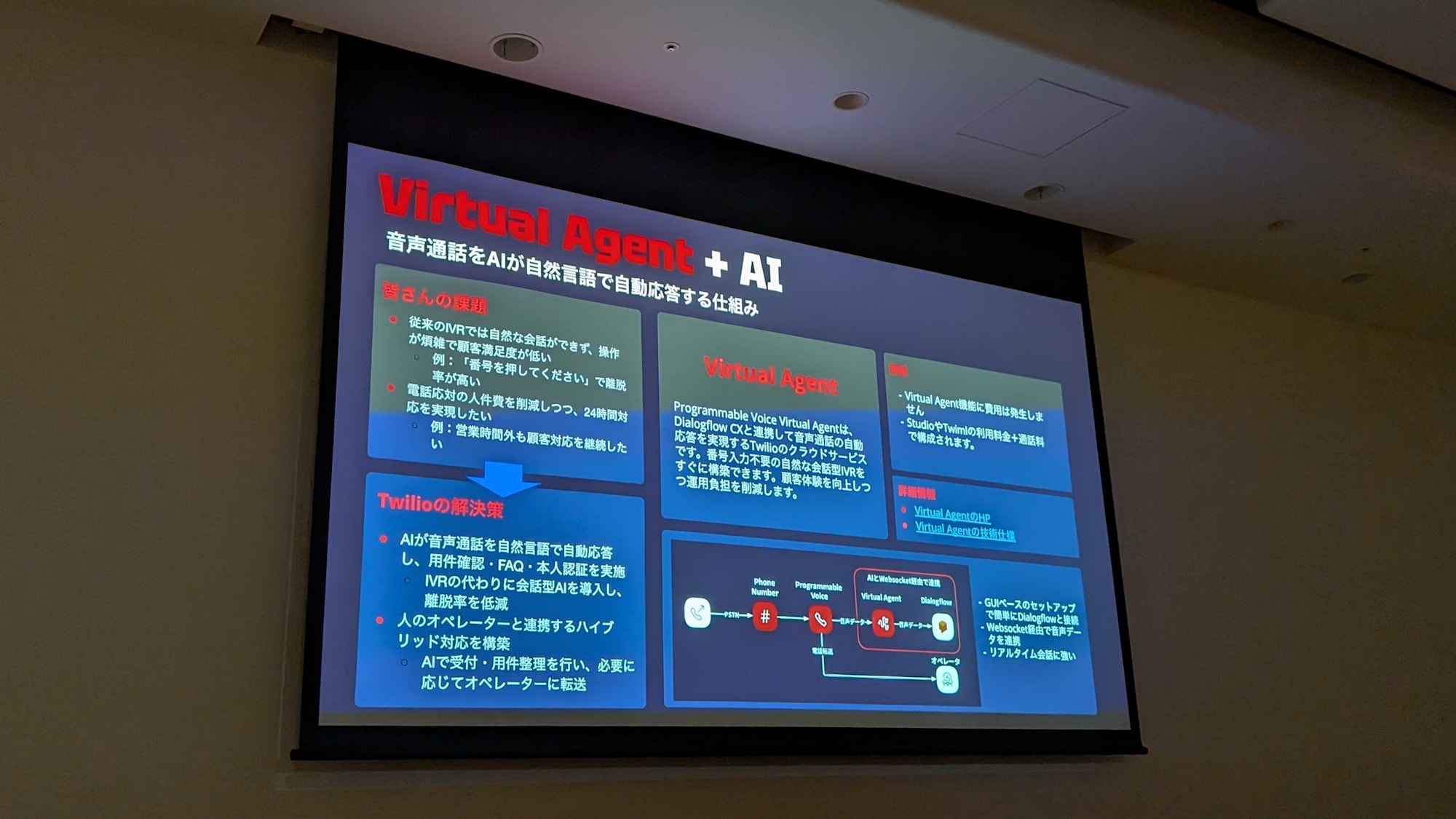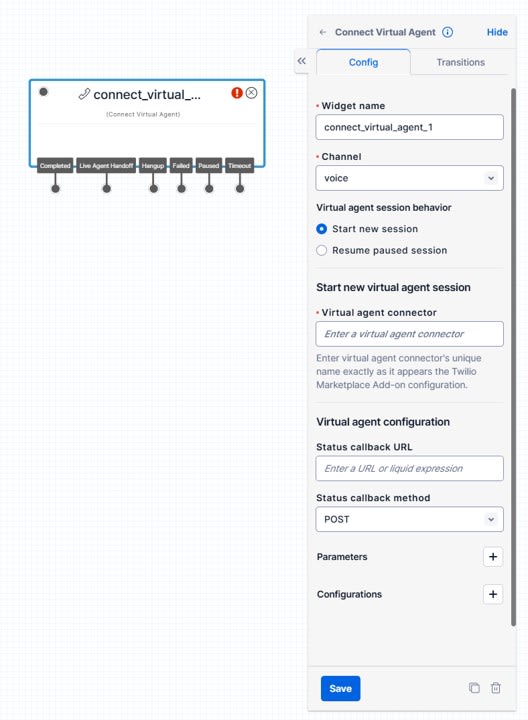
Next-Generation IVR System Realized with Twilio Studio Connect Virtual Agent - Twilio CX Innovation Night Part 2 Report
Introduction
Traditional IVR (Interactive Voice Response) systems primarily used a method where callers navigated options by pressing numbers. However, this approach was complicated to operate, had high abandonment rates, and improving customer experience remained a challenge.
Twilio Studio's Connect Virtual Agent is a solution that addresses these challenges. With native integration to Google Dialogflow CX, it enables easy construction of conversational IVR systems using natural language. This article explains the technical features and implementation approaches of Connect Virtual Agent.

Target Audience
- Developers considering IVR system improvements or implementing conversational systems
- Engineers interested in building workflows using Twilio Studio
- Individuals responsible for contact center automation and efficiency improvement
References
Features of Connect Virtual Agent
Connect Virtual Agent is provided as a Widget in Twilio Studio and achieves seamless integration with Google Dialogflow CX.
Compared to traditional Dual-Tone Multi-Frequency (DTMF) based IVR, it has the following features:
- Natural Language Support: Natural conversation through voice instead of number input
- Flexible Dialogue Flow: Dynamic response generation based on spoken content
- Hybrid Approach: Combines AI response with handover to human operators
Implementation Example
Based on the configuration example introduced at the "Twilio CX Innovation Night Part 2" event, we'll explain implementation patterns for Connect Virtual Agent.

Basic Implementation Flow
- Call Start: Caller dials a Twilio phone number
- Virtual Agent Activation: Studio Flow executes the Connect Virtual Agent Widget
- Dialogflow CX Integration: Voice is sent to Dialogflow CX for intent analysis
- AI Response: Appropriate responses are generated based on analysis results
- Escalation Decision: Transfer to human operators when necessary### Settings in Studio Flow
The Connect Virtual Agent Widget allows the following settings:

Required Settings
- Widget Name: Any name
- Channel: Select either voice or conversations
- Virtual agent connector: Name of the Dialogflow CX connector
Optional Settings
- Parameters: Personalization through session parameters
- Configurations: Language settings and voice model adjustments
Use Case Examples
As shown in the "Your Challenges" section in the figure, the following use cases can be considered:
- After-hours automated response: 24-hour support for FAQs and basic inquiries
- Multilingual support automation: Automatic language detection from speech
- Streamlining complex inquiries: Initial information gathering by AI
Summary
Twilio Studio's Connect Virtual Agent allows you to easily build conversational systems that go beyond the limitations of traditional DTMF-based IVR. Through native integration with Google Dialogflow CX, it enables natural language processing, flexible conversation flows, and hybrid support. It particularly demonstrates its value in after-hours support, multilingual support, and streamlining complex inquiries.

